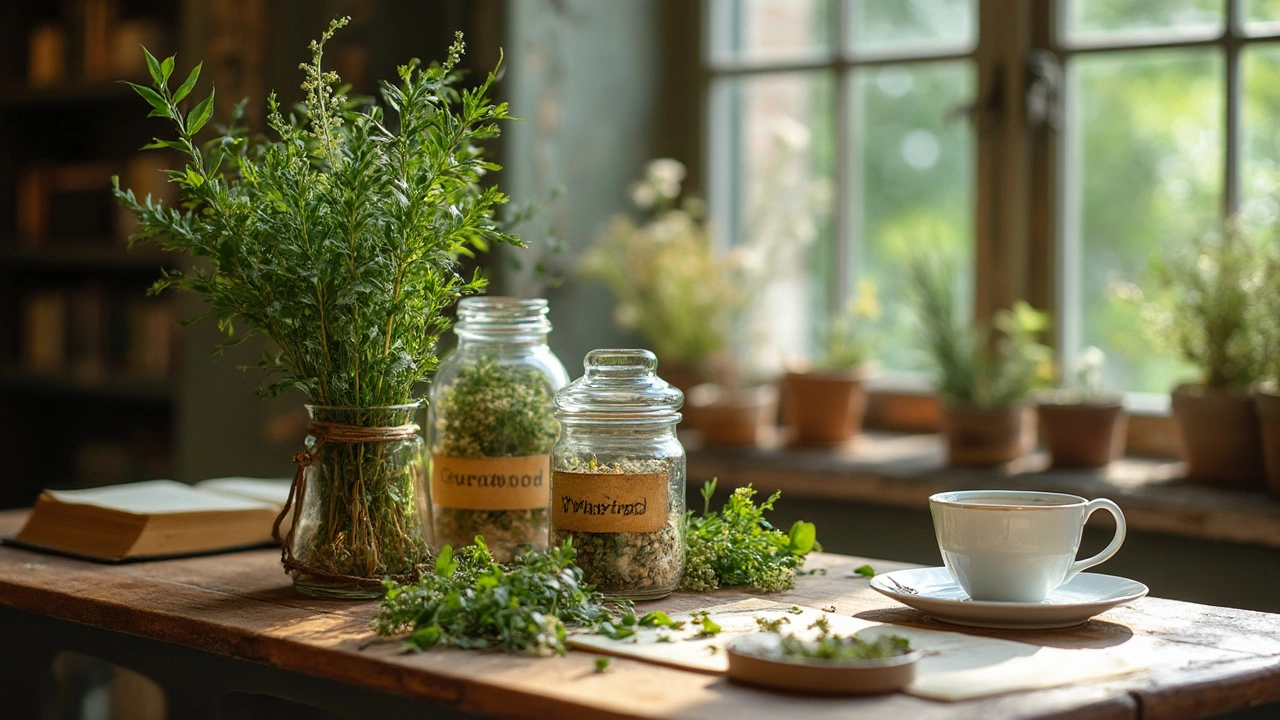Bitter Herbs: How They Help Digestion, Appetite and Liver Health
Feeling heavy after meals or struggling with low appetite? Bitter herbs are a simple, old-school fix that still works. They trigger a fast reflex: more saliva, stomach acid, and bile. That improves digestion, reduces bloating, and helps your body process fats better. You don’t need exotic rituals—just small, regular doses before meals.
Common bitter herbs and what they do
Here are easy-to-find bitters and why people use them:
- Gentian: very bitter; used to stimulate appetite and increase stomach acid.
- Wormwood (Artemisia): stronger scent, often used for digestive sluggishness and certain gut parasites (use carefully).
- Dandelion root/leaf: mild bitterness; supports liver and bile flow, good as a daily tonic.
- Bitter melon: food and medicinal — can lower blood sugar, used in some cuisines.
- Artichoke leaf: gentle liver support and helps with fat digestion.
- Black walnut: used for its bitter compounds and as a supplement in some herbal traditions.
How to use bitters safely and effectively
Start small and keep it simple. For tinctures or liquid bitters: try 10–30 drops (about 0.5–1.5 ml) or 1/4–1/2 teaspoon diluted in a little water, taken 5–15 minutes before a meal. For tea: steep 1 teaspoon of dried root or herb in a cup of hot water for 8–12 minutes; sip before eating. If you eat bitter greens (arugula, radicchio, endive), aim for a small salad or a few leaves before the main course to trigger the same reflex.
Give a new bitter one to two weeks to see effects. They often help with bloating, slow digestion, and poor appetite. If you notice stronger digestion but also heartburn or discomfort, lower the dose or stop.
Safety tips: avoid strong bitters if you are pregnant or breastfeeding without medical advice. Bitter herbs can interact with blood-thinning medications and drugs that lower blood sugar. People with gallstones, ulcers, or active gastritis should check with their clinician first. If you take prescriptions, ask your healthcare provider before starting regular bitters.
Choosing quality: pick organic when possible, buy from a reputable brand, and check the ingredient list for unwanted fillers. If you want alcohol-free options, look for glycerin-based tinctures or dry tea blends. Store tinctures in dark glass away from heat and light.
Want a quick starter routine? Try one gentle option like dandelion tea or a commercial digestive bitter: 10–20 drops in water, 10 minutes before lunch and dinner for two weeks. Track how your digestion and appetite change, and adjust from there.
Bitter herbs are a low-cost, low-tech way to improve digestion and appetite. Use small doses, watch for reactions, and ask a pro if you have health conditions or take medicines. Simple habits—one dropper of bitters or a few bitter leaves before meals—can make a noticeable difference.




